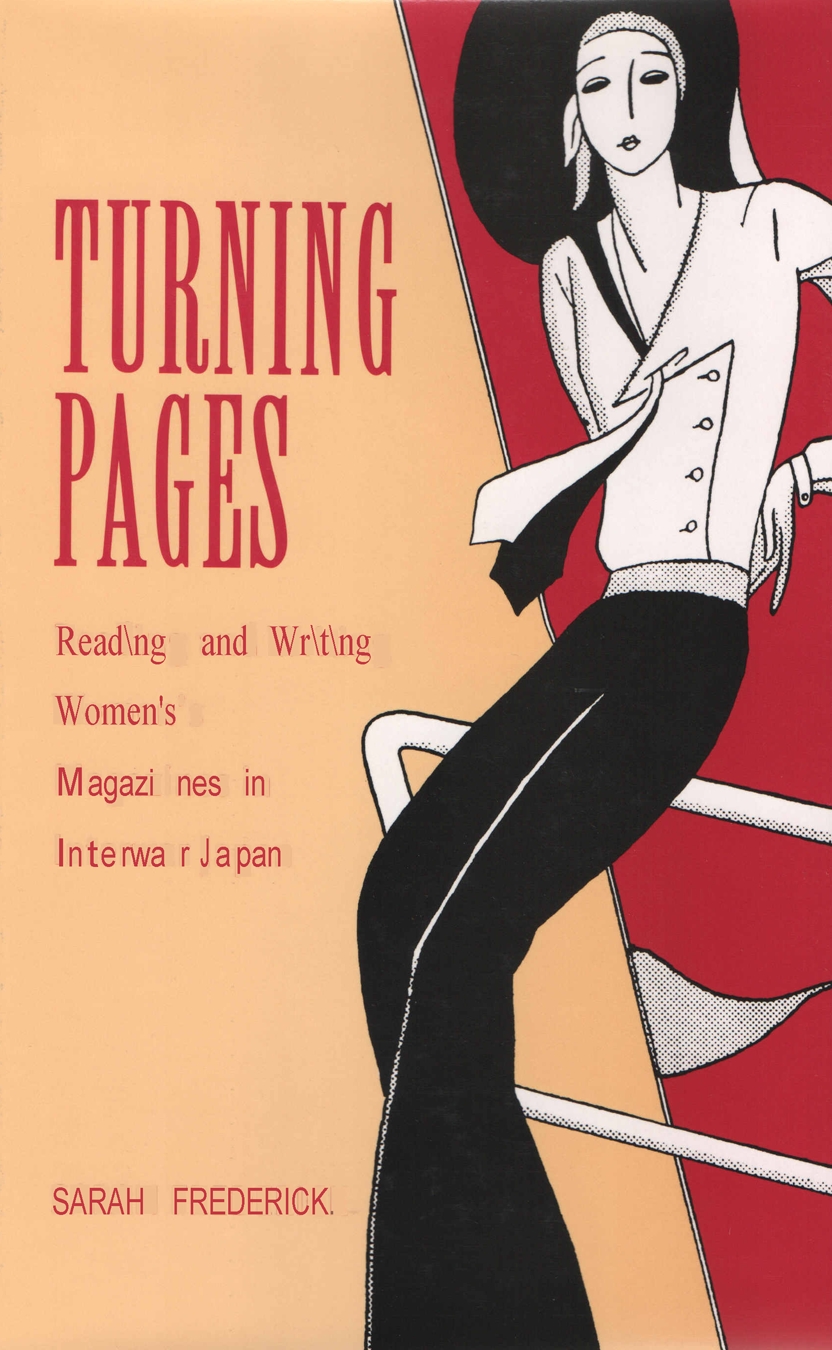Turning Pages: Reading and Writing Women’s Magazines in Interwar Japan
- About the Book
-
“Turning Pages makes a significant contribution to studies of Japanese print culture and to the growing interest in the cultural landscape of the 1920s and 30s in Japan. The scholarship is superb, the writing flows beautifully, and the images from the magazines are wonderfully evocative.” —Jan Bardsley, University of North Carolina at Chapel Hill
“This important book contributes to our gendered understanding of Japanese modernity. Frederick has insightfully discerned what we need to know in order to situate the rich materials available to researchers in reprint editions of women’s magazines. Because so many significant literary works made their initial appearance in women’s magazines, Frederick’s book allows students and scholars to appreciate as never before the context in which certain works were first read.” —Sally A. Hastings, Purdue University
By the early 1920s, “ladies magazines” (fujin zasshi) had become a distinct category in Japanese publishing. Women’s periodicals increasingly influenced intellectual discourse, the literary establishment, and daily life. Turning Pages makes sense of this phenomenon through a detailed analysis of major interwar women’s magazines, especially the literary journal Ladies’ Review, the popular domestic periodical Housewife’s Friend, and the politically radical magazine Women’s Arts. Through a close examination of their literature, articles, advertising, and art, the book explores the magazines as both windows onto and actors in this vibrant period of Japanese history.
Turning Pages considers the central place of representations of women for women in the culture of interwar-era Japan and our understanding of Japanese modernity. Taking a holistic approach to the texts and using tools of historical, literary, and cultural analysis, the author examines the triangular relationship among the consumers, the producers, and the texts themselves.
- About the Author(s)
-
Sarah Frederick, Author
Sarah Frederick is associate professor at Boston University, where she teaches Japanese literature, film, and popular culture. She is also the translator of Yellow Rose by Yoshiya Nobuko.
- Reviews and Endorsements
-
- “Turning Pages is a valuable contribution to a growing body of scholarship that promises to resituate literary, philosophical, social, and political texts in the context of their material production, thereby illuminating the manifold negotiations those texts are subjected to during the tortuous path from writer to reader.”
—Journal of Japanese Studies - “The book is well written, provides a wealth of data and displays the author’s familiarity with the material. Frederick correctly understands women’s magazines as products and actors of social change. She analyzes how texts are categorized in the magazines (as fictional, personal, expert, etc.) and how advertising is presented; she explains editorial guidelines, cover-page designs and magazine layout, the relationship between readers and magazines, such readers’ letters to the editor and jitsuwa (true stories), solicited from readers, and examines how these elements changed over time.”
—Pacific Affairs - "Turning Pages makes a significant contribution to studies of Japanese print culture and to the growing interest in the cultural landscape of the 1920s and 30s in Japan. The scholarship is superb, the writing flows beautifully, and the images from the magazines are wonderfully evocative." —Jan Bardsley, University of North Carolina at Chapel Hill
—Jan Bardsley, University of North Carolina at Chapel Hill - "This important book contributes to our gendered understanding of Japanese modernity. Frederick has insightfully discerned what we need to know in order to situate the rich materials available to researchers in reprint editions of women’s magazines. Because so many significant literary works made their initial appearance in women’s magazines, Frederick’s book allows students and scholars to appreciate as never before the context in which certain works were first read." —Sally A. Hastings, Purdue University
—Sally A. Hastings, Purdue University
- “Turning Pages is a valuable contribution to a growing body of scholarship that promises to resituate literary, philosophical, social, and political texts in the context of their material production, thereby illuminating the manifold negotiations those texts are subjected to during the tortuous path from writer to reader.”
- Supporting Resources
-





